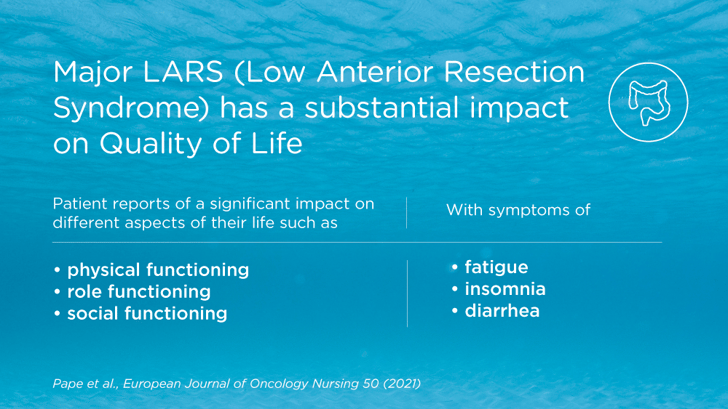Low anterior resection syndrome (LARS) has a substantial negative impact on quality of life and almost 70% of patients experienced major LARS 1-11 years after rectal surgery.
 Rectal cancer patients experience symptoms of low anterior resection syndrome (LARS) several years after their rectal surgery with a substantial impact on quality of life (QoL) as shown in this observational cohort study.
Rectal cancer patients experience symptoms of low anterior resection syndrome (LARS) several years after their rectal surgery with a substantial impact on quality of life (QoL) as shown in this observational cohort study.
Patients with major LARS had a significantly lower global health status than patients with minor or no LARS. Other QoL factors that had a significant and clinical effect on the patients were:
- physical functioning
- role functioning
- social functioning
- fatigue
- insomnia
- diarrhea
Symptoms for LARS are common and 69% of the patients experienced major LARS, but there is no standardized management. The treatment option most commonly used were diet and medication while other options like pelvic floor rehabilitation, transanal irrigation (TAI) and neuromodulation were rarely used.
The authors conclude that in addition to hard endpoints such as mortality and recurrence rates, more clinical focus on bowel problems in rectal cancer survivors is needed.




